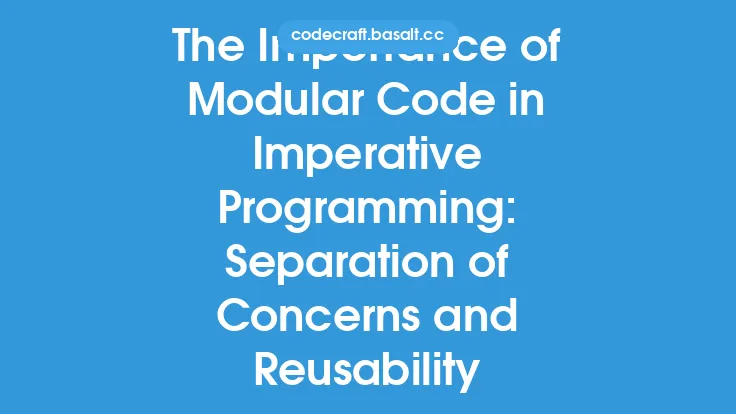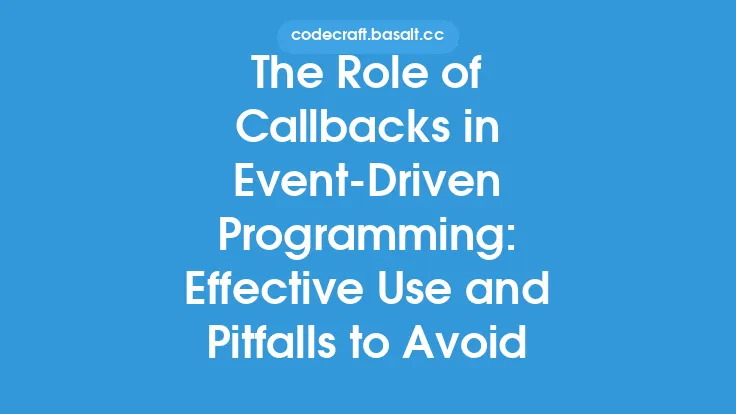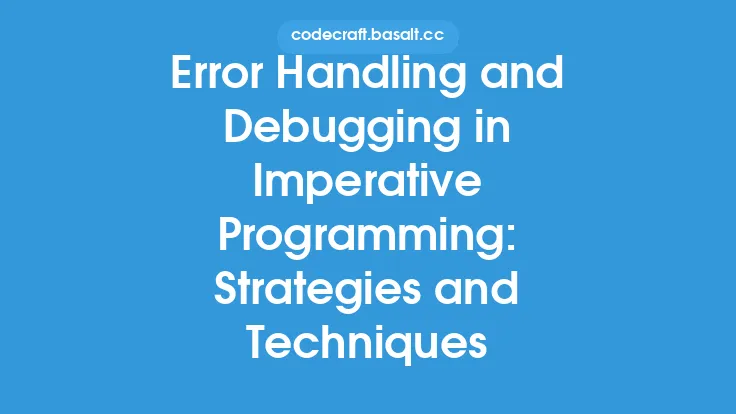Imperative programming is a paradigm that focuses on describing how to perform a task, using statements that change the program's state. At the heart of imperative programming are two fundamental concepts: statements and expressions. Understanding the role of these concepts is crucial for writing effective and efficient imperative code.
Introduction to Statements
In imperative programming, a statement is a unit of code that performs a specific action. Statements can be thought of as instructions that the computer executes in sequence. They can be used to assign values to variables, control the flow of the program, or perform input/output operations. Statements are typically terminated with a semicolon (;) and can be combined to form a program. For example, the statement `x = 5;` assigns the value 5 to the variable x. Statements can also be used to call functions, which are reusable blocks of code that perform a specific task.
Introduction to Expressions
An expression, on the other hand, is a unit of code that evaluates to a value. Expressions can be thought of as formulas that the computer evaluates to produce a result. They can be used to perform arithmetic operations, compare values, or access array elements. Expressions are often used as part of statements, but they can also be used independently. For example, the expression `2 + 3` evaluates to the value 5. Expressions can be simple, such as a single variable or literal value, or complex, involving multiple operators and operands.
The Relationship Between Statements and Expressions
In imperative programming, statements and expressions are closely related. Statements often contain expressions, which are used to compute values or perform operations. For example, the statement `x = 2 + 3;` contains the expression `2 + 3`, which is evaluated to produce the value 5, which is then assigned to the variable x. Conversely, expressions can be used to create new statements. For example, the expression `x > 5` can be used as a condition in an if statement, such as `if (x > 5) { ... }`.
Types of Statements
There are several types of statements in imperative programming, including:
- Assignment statements: These statements assign a value to a variable, such as `x = 5;`.
- Control flow statements: These statements control the flow of the program, such as if statements, switch statements, and loops.
- Input/output statements: These statements perform input/output operations, such as reading from the keyboard or writing to the screen.
- Function call statements: These statements call a function, which is a reusable block of code that performs a specific task.
Types of Expressions
There are also several types of expressions in imperative programming, including:
- Arithmetic expressions: These expressions perform arithmetic operations, such as `2 + 3`.
- Comparison expressions: These expressions compare values, such as `x > 5`.
- Logical expressions: These expressions perform logical operations, such as `x && y`.
- Array expressions: These expressions access array elements, such as `arr[0]`.
Evaluating Expressions
When an expression is evaluated, the computer follows a set of rules to determine the final value. These rules include:
- Operator precedence: This determines the order in which operators are applied, such as parentheses, exponentiation, multiplication and division, and addition and subtraction.
- Operand evaluation: This determines the order in which operands are evaluated, such as left-to-right or right-to-left.
- Type conversion: This determines how values are converted from one type to another, such as converting an integer to a floating-point number.
Statement Execution
When a statement is executed, the computer performs the specified action. This can include:
- Assigning a value to a variable
- Controlling the flow of the program
- Performing input/output operations
- Calling a function
The execution of a statement can also have side effects, such as modifying the program's state or producing output.
Conclusion
In conclusion, statements and expressions are fundamental concepts in imperative programming. Understanding the role of these concepts is crucial for writing effective and efficient imperative code. By mastering the use of statements and expressions, programmers can create complex and sophisticated programs that solve real-world problems. Whether you are a beginner or an experienced programmer, understanding the relationship between statements and expressions is essential for success in imperative programming.





